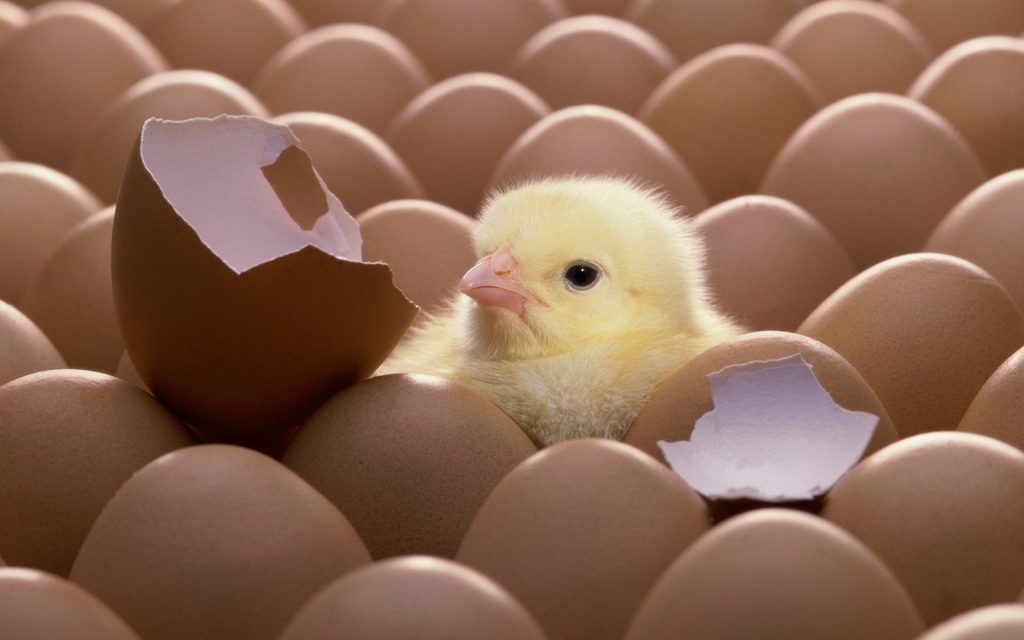 Blue Cliff Record, Case 16
Blue Cliff Record, Case 16
A monk asked Ching Ch’ing, “I am breaking out; I ask the teacher to break in.”
Ching Ch’ing said, “Can you live or not?”
The monk said, “If I weren’t alive, I’d be laughed at by people.”
Ching Ch’ing said, “You too are a man in the weeds.”
Reflections
The heart of this koan is the metaphor of a mother hen and her chick about to hatch from its eggshell. The way this works is that the chick tap, tap, taps on the inside trying to get out. The chick is unable on its own to tap through the shell, so the mother hen must be present and alert to when the chick is tapping. She then taps on the outside. Together tapping, the shell cracks and the chick emerges. It’s important that the mother hen taps exactly when the chick on the inside taps. If the mother hen taps too soon and cracks through the eggshell before the chick is ready to come out the chick will die. If the mother hen is too late and the chick is stuck in the shell, the chick will die. And if the chick begins to tap too early, before it is time to come out, the mother hen will not respond and the chick will die.
A monk asked Ching Ching, “I am breaking out; I ask the teacher to break in.”
Ching Ching said, “Can you live or not?”
The monk said, “If I weren’t alive, I’d be laughed at by people.”
Ching Ching said, “You too are a man in the weeds.”
When student and teacher work together it is important, that the student works hard at her practice. That she tap tap taps on the shell of her koan until it cracks and she gets it. Without this tapping work she won’t make it. It is also important that the teacher knows when the student is ready so that the teacher’s tap, which may take the form or a simple word, a smile, a shout, a hit with a stick, a tap—realization may happen. So it is with teacher and student. The key element in the mutual tapping of chick and mother hen—of student and teacher—is trust. The role of the chick is to tap, tap, tap. Trusting that the mother hen will know when the chick is ready to emerge from the shell. Trusting that the mother hen will tap in response, thereby helping break through the shell, releasing the chick. The role of the teacher is to be sensitive to the tapping of the student. To know when the student is ready to emerge from his shell. When the student is ready to break through a koan, to receive a dharma-insight, then the teacher will tap. The important thing is mutual trust between student and teacher.
The student must work hard at cracking through her koan or whatever practice she is on. And the teacher must know when the student is ripe. Then realization is possible. So, when it works well, there’s an intimate, subtle, and dynamic relationship between student and teacher. Student and teacher must “click.” In the language of this koan they must “tap.”
The second metaphor in the koan is in Ching Ching’s final words,
You too are a man in the weeds.
One can become lost and entangled in weeds. Weeds can engulf, overpower and choke healthy plants and flowers. And so here we have the image of a man, stuck, engulfed in weeds and choking. Ching Ching is saying the monk is trapped in the weeds of his thoughts.
A monk asked Ching Ching, “I am breaking out; I ask the teacher to break in.”
Ching Ching said, “Can you live or not?”
The monk said, “If I weren’t alive, I’d be laughed at by people.”
Ching Ching said, “You too are a man in the weeds.”
What’s happening here? It seems to me there’s a little bit of arrogance on the part of the monk. He is telling his teacher,
“Hey! Look at me! I’m ready! “
“I’m at the point of enlightenment, perhaps even transmission.”
“Now you need to recognize it.”
It doesn’t work that way. It should be the other way around. The teacher hears the tapping of the student and knows when the student is ripe. When the teacher knows the student is ready, then the teacher begins to tap. Here, in the koan, the chick-monk is declaring to all and sundry of the monks in the monastery,
I’m ready!
I’m enlightened!
I’m breaking out!
I interpret the koan in this way because of Ching Ching’s question,
Can you live or not?
It seems to me that the question is Ching Ching’s way of saying that he doesn’t think the monk is ready. If Ching Ching thought the monk was ready then his question would be irrelevant. It was premature of the monk to say he is breaking out. He’s not ready to break out. And the monk’s response indicates that his question was made in a public forum. Possibly during a dharma-combat situation, where the monk was challenging the teacher, Ching Ching. The arrogance is clearly displayed in the monk’s statement that he’d be the laughing stock of his fellow monks if he was not found to be ready to break out. Ching Ching’s response,
You’re entangled in the weeds of your ambition, places the monk right back into his eggshell. More growth required. More maturation needed.
***
A monk asked Ching Ching, “I am breaking out; I ask the teacher to break in.”
Ching Ching said, “Can you live or not?”
The monk said, “If I weren’t alive, I’d be laughed at by people.”
Ching Ching said, “You too are a man in the weeds.”
